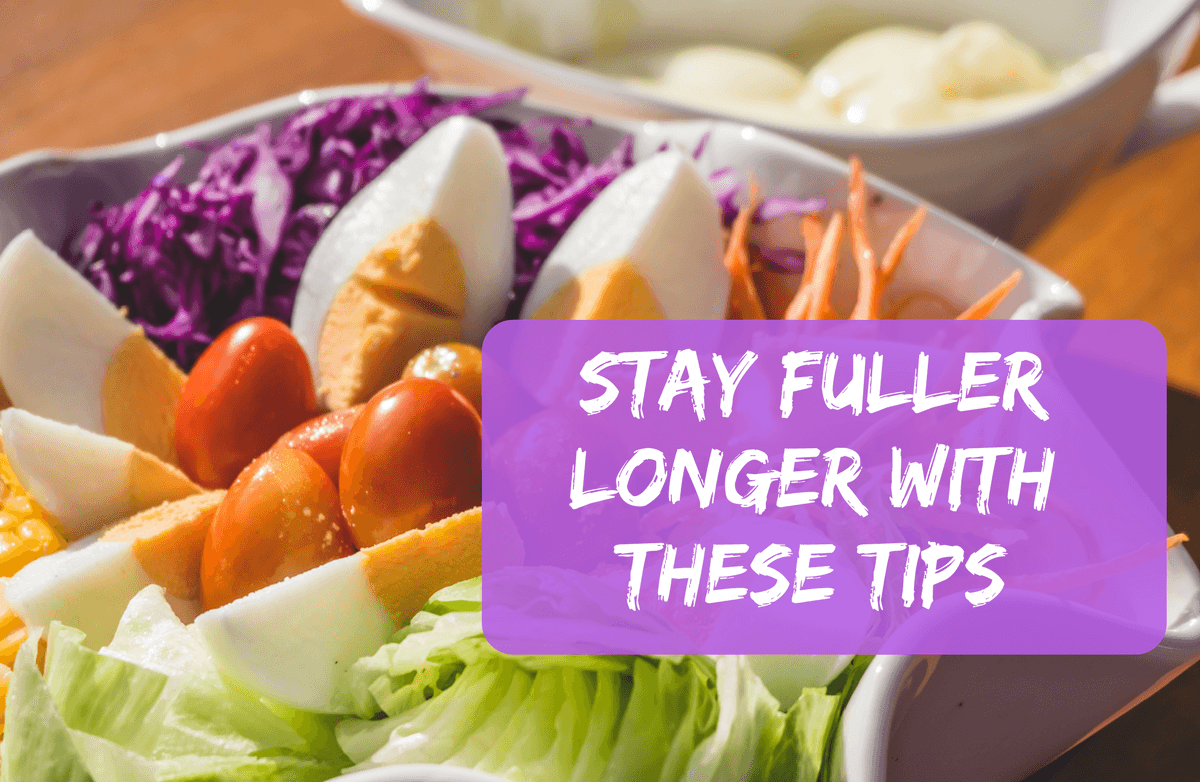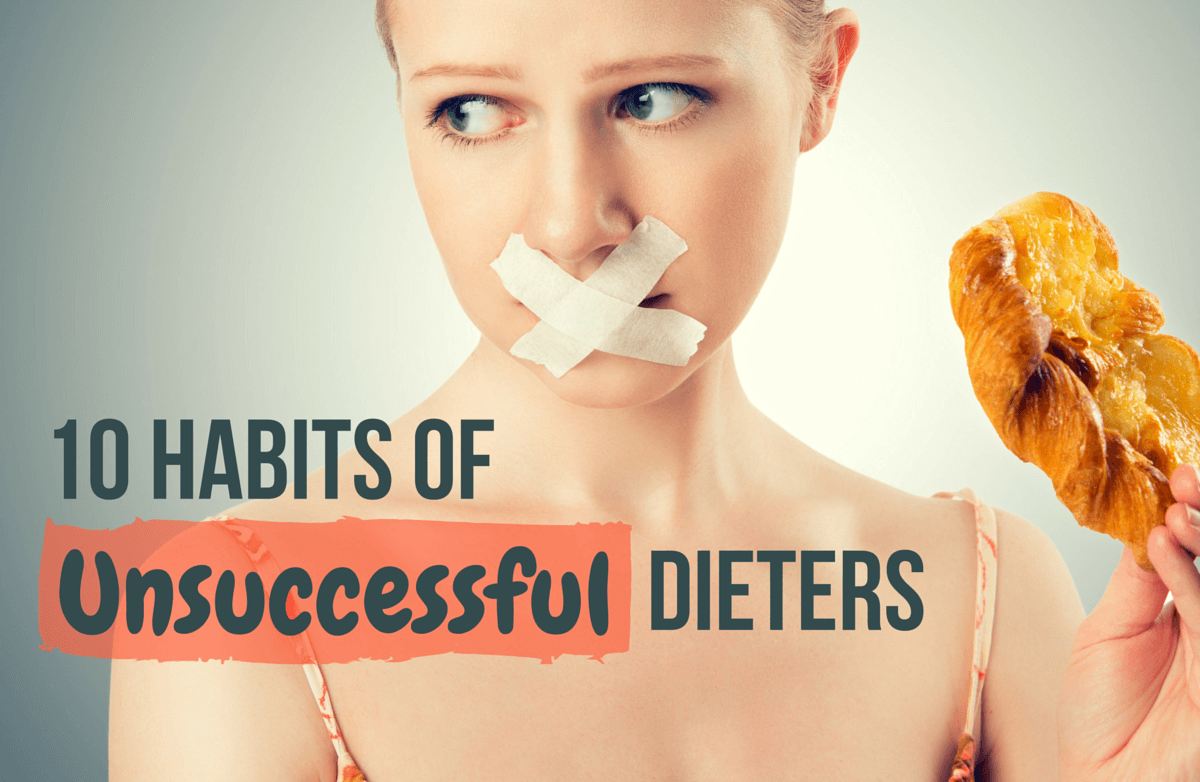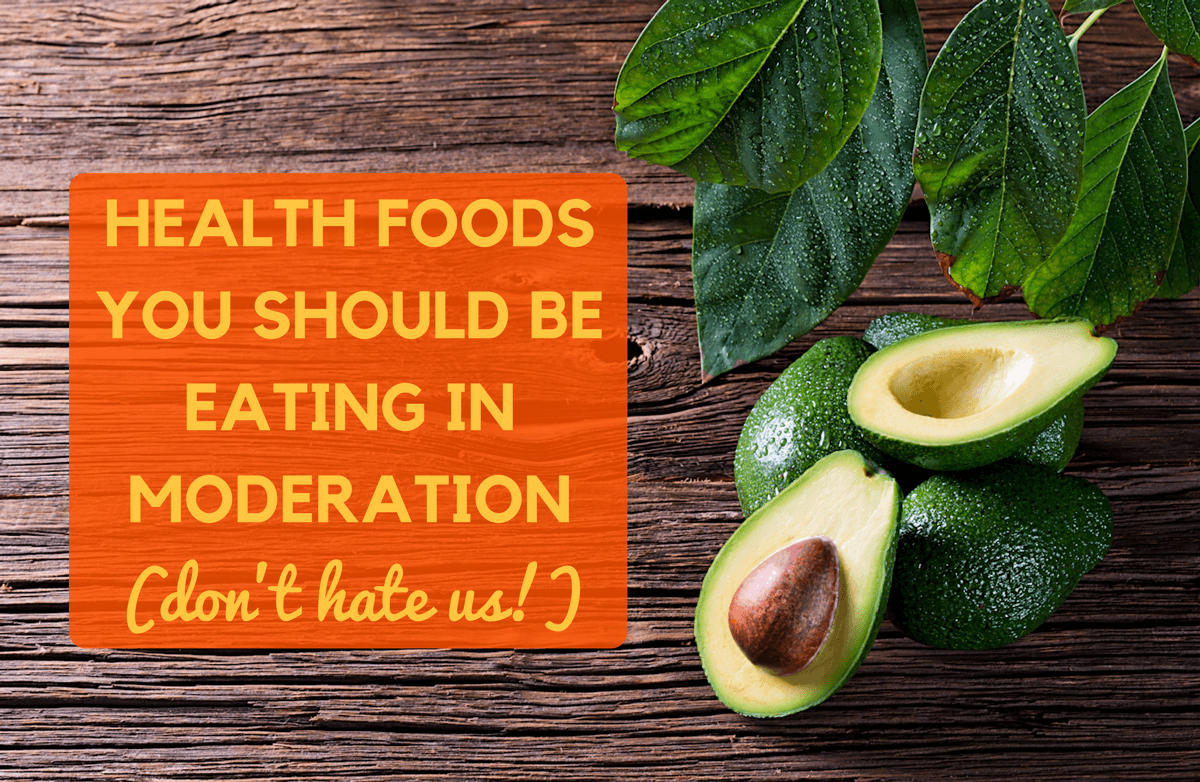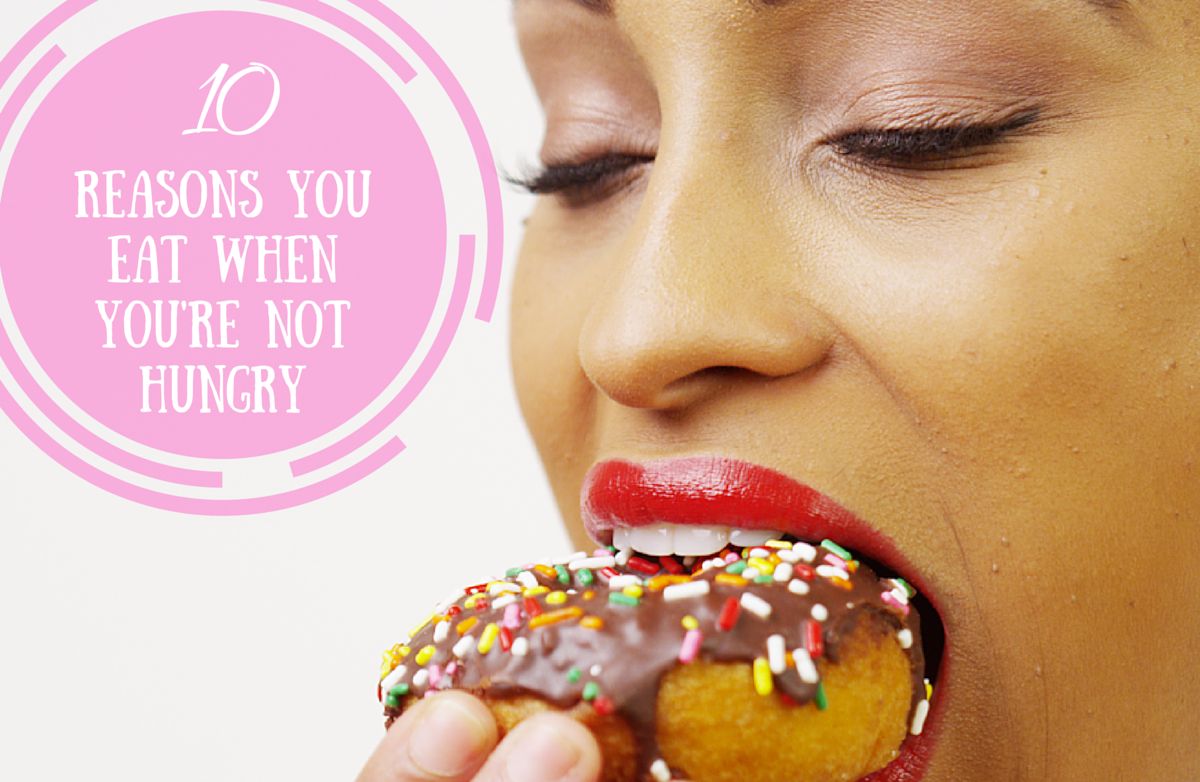Instead, you're irritable, short-tempered and downright exhausted. You find yourself counting down the minutes until you can have your next meal or snack, but even after eating it, you never feel satisfied. You experience an irrational jealousy as you watch co-workers, family members and even strangers enjoy delicious food that you're not "allowed" to eat.
In other words, you're hungry. All. The. Time.
If there's one thing that all diets have in common, it's that they're destined to fail. One of the biggest reasons for that failure is deprivation. When your body doesn’t get the nutrients and nourishment it needs—or when you cut out entire food groups or deny yourself even moderate amounts of what you enjoy most—you'll be much more likely to go off the rails and not only break the diet rules, but chew them up and spit them out.
There's a growing school of thought that we should abandon the whole concept of dieting, arguing that a rigid eating plan isn't an effective tool for weight loss success. Instead, experts advocate focusing on healthy, realistic lifestyle changes that won't lead you into "
1. Sleep the hunger away.
The less often you’re awake, the less you'll eat, right?
Additionally, when you don't get enough sleep, your leptin levels will plummet. "
2. Eat mindfully.
Dani Singer, fitness director
Singer suggests trying to be completely present during your next meal—no phone, no book, no TV. If you're accustomed to having these dining distractions, it won't be easy at first.
"Your mind will race, it will tell you you're bored, that you have so much to do," Singer says. "It will scream for you to check your phone. Notice those thoughts, let them go and return your attention to your food. Focus on the sensations, the aroma—anything physical. Most importantly, focus on how your body feels as you continue eating. Be fully concentrated on the transition from 'hungry' to 'satisfied.'"
Although this may seem difficult at first, after a few focused, distraction-free meals, you'll likely find that it takes a lot less food to fill you up than you once thought.
3. Embrace the power of protein.
According to registered dietitian Becky Hand, research data suggests that adequate protein intake helps control
In addition, she adds, research is showing numerous benefits of adequate protein consumption at breakfast. Hand recommends aiming for at least 20 grams of protein with your morning meal to reduce food cravings and hunger throughout the day, and to decrease the desire for late-night snacking.
4. Eat more small meals.
This is an oldie, but goodie. By spreading your intake over more small meals throughout the day, you'll feel less deprived and, therefore, less hungry.
"When you eat less often, you get hungry faster," says fitness trainer Samantha Bowman. "Eating chicken and broccoli or salad at meals won’t hold you over for six hours." Bowman suggests adding a small,
Registered dietitian Judy
Some of her favorite healthy
5. Drink more water.
It's an obvious one, but we'd be remiss not to include it here—simply because it works.
"Water is filling and hydrating and can help make you feel full," says Muhlstein. "It is very common for people to confuse hunger for thirst. They think they are starving for food when really
Next time you feel "starved," try drinking 16 ounces of water before reaching for a snack. If you still feel hungry for food afterward, your body legitimately needs fuel—but if not, you just needed the hydration and can hold off on eating.
6. Don't forget the fiber.
Although"Fiber’s role in hunger control is closely tied to the many types of fiber, each with differing physical and chemical properties," Hand says. She notes five ways in which fiber-rich foods achieve this:
- Fiber-rich foods require more chewing, thus reducing the total amount of food consumed
- They increase saliva and gastric juice production, which expands the stomach
- Foods high in fiber help to slow gastric emptying as well as the glucose-insulin response
- They may replace higher calorie foods
- High-fiber foods may take up more space on your plate, "tricking" you into thinking you
're consuming more
7. Respect your hunger and fullness.
Along with Singer's tips on eating mindfully, registered dietitian Chelsey Amer stresses the importance of honoring your body's cues for hunger and fullness.
"When you eat according to your innate hunger and satiety cues, you won't overeat, you can eat foods that are satisfying to you and you won't feel like you're constantly on a diet," she says.
The key, according to Amer, is to learn to eat a proper balance of nutrients—protein, fiber and healthy fats—to give your body adequate energy and keep you full for a sustained period of time. When you balance the nutrients you eat instead of filling up on empty carbohydrates or just protein, you will eat more satisfying meals, which in the long run will help you manage and lose weight. Amer suggests working with a qualified nutrition professional to learn the basics of good nutrition.
8. Eat more low-density foods.
According to Hand, calorie density is the key to feel full without overeating.
"Calorie density refers to the number of calories per gram of food," Hand explains. "Foods that are high in calorie density contain a high number of calories per gram; foods that are low in calorie density contain a low number of calories per gram. When you eat too many calorie-dense foods, you’ll end up consuming a lot of calories to fill your belly. If you focus on low-calorie density foods, you can fill up on fewer calories because low-density foods contain a lot more water, which adds weight and volume to the food, but no calories."
Some examples of low-density foods include broth-based soups, fruits, leafy greens and non-starchy veggies.
9. Choose the right kind of carbs .
Contrary to what you might have heard,
10. Limit your options for each meal.
But isn't variety a good thing? Yes and no. Have you ever noticed that even when you're stuffed, you can always make room to try this one other thing, or to have dessert after a meal? Fitness trainer Kasey Shuler says this could be due to something called sensory-specific satiety. The National Institute of Health defines sensory-specific satiety as "a temporary decline in pleasure derived from consuming a certain food in comparison to other unconsumed foods."
"Basically, the more variety we have in front of us (such as an all-you-can-eat buffet), the more we will eat," Shuler explains. "This is a survival mechanism—the more variety we have in our diet, the more likely we will get all the nutrients we need. But the way our food has been manufactured, our brains light up in response to the dizzying array of flavors and lures us to keep eating more, usually in the form of extra calories our body doesn't
If you struggle with overeating during a certain meal, Shuler suggests trying to eat the same foods for that meal for a week (of course, the meal should meet all of your nutritional needs). If you only have one or two options, you may not be as inclined to keep eating once you're full.
Cutting calories is an unavoidable step in any weight-loss journey, but that doesn't have to mean feeling hungry all day. With these smart strategies, you can stay within your target range while still remaining satisfied (and sane) between meals.













